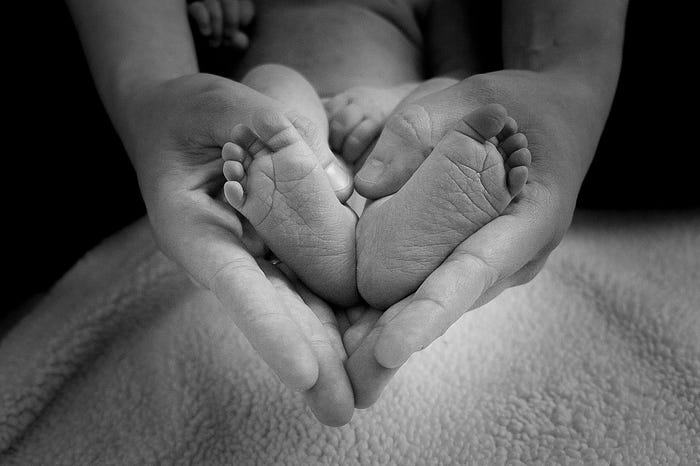Navigating Motherhood: A Journey of Love and Choices
Written on
Chapter 1: The Question of Regret
Recently, a friend posed a question that caught me off guard: did I regret having just one child? I calmly replied no, but the truth is more nuanced. While I never regretted bringing my daughter into the world, I found that I didn't particularly enjoy the experience of motherhood itself. My love for my daughter is profound, but it doesn't equate to a love for the role of being a mom.
Throughout our long friendship, I've shared my parenting experiences with her—the struggles with infertility, the bouts of postpartum depression, and the challenges I faced after leaving my job. I always felt my friend had a different relationship with motherhood. She embraced it entirely, often proclaiming her joy from the very beginning.
> "I loved being a mom from day one," she would say, embodying the quintessential content stay-at-home mom. While she faced her share of challenges, she seemed to derive immense satisfaction from the role I struggled with.
I once made a sarcastic remark about my six-month-old's constant crying driving me to the brink, but my friend didn't catch the humor. Instead, she looked horrified and advised against having a second child. Sarcasm, however, was my coping mechanism.
Despite my mixed feelings, I was grateful for the choice to stay home. Following advice from friends, I created a list of ways to survive the demands of being at home, including date nights, playgroups, and social gatherings. Yet, as our friendship evolved over the years, it became clear that our experiences of motherhood were fundamentally different. For her, parenting was all-encompassing; for me, it was significant but not all-consuming.
Section 1.1: The Struggles of Motherhood
Reflecting on my journey, I recalled the extensive fertility treatments I underwent in 1997. After a series of tests and procedures, I finally became pregnant through intrauterine insemination. While the pregnancy was mostly uneventful, complications arose during the third trimester when I developed pre-eclampsia.
At 37 weeks, I was rushed to the hospital, where I faced a harrowing labor experience that culminated in an emergency delivery. The aftermath was challenging, as I dealt with a severe headache caused by an error during my epidural. The pain was unbearable, and I struggled to care for my newborn daughter.
Postpartum depression quickly set in, and while I adored my daughter, I felt a deep despair that was hard to articulate to my friend. I often had fleeting thoughts of wanting to escape my reality, which she would never comprehend, as she found joy in motherhood from the start.
Subsection 1.1.1: The Complexity of Love

When my friend questioned whether my experiences influenced my decision not to have another child, I understood her curiosity. To her, it seemed unfathomable that someone could feel anything but complete joy in motherhood, especially after the struggles I faced.
I explained to her that while my traumatic experiences played a role, the desire for a second child simply faded after my daughter was born. My husband and I initially envisioned having two children, but once I became a mother, it became clear that one was enough for me.
Chapter 2: Understanding Differences
Therapist Reacts to Confessions of Parents Who Regret Having Children - YouTube
In this insightful video, a therapist discusses the often-taboo subject of parental regret, delving into the emotional complexities that can accompany the journey of motherhood. It's a reminder that every parent’s experience is unique and that feelings of regret or doubt are valid.
I Regret Giving Birth, I Would Have Sold My Three Kids If The Slave Trade Was Still On - Woman Reveals - YouTube
This video features a candid discussion with a mother expressing her regrets about motherhood and the pressures that come with it. It sheds light on the importance of acknowledging diverse experiences in parenting and the need for understanding rather than judgment.
As I concluded my story, I noticed a shift in my friend's demeanor. She seemed more open and less judgmental than in the past. Our experiences were distinct, and while I loved my daughter deeply, my feelings towards motherhood were complicated.
In the end, I believe that every child should be wanted, and mothers deserve respect for their choices—whether they are to embrace motherhood fully or to take a different path. I wanted to be a mother fiercely, yet my resolve to have another child dissipated just as strongly after my daughter was born.
My husband, understanding the weight of my journey, was supportive of our decision to remain a family of three. He recognized that the choice of how many children to have is deeply personal and should never be dictated by societal norms.
Ultimately, my friend will likely never fully grasp the intricacies of my experience. However, she has grown more curious and less judgmental, realizing that despite our divergent choices, our children are thriving. The future is here, and I celebrate the remarkable person my daughter has become—a testament to the love and choices I made along the way.